Continuing with my mission to inspire the next generation of youngsters — both Nepalese and others — I have been making presentations at schools about my life, compassion, international understanding, world peace and making life meaningful. What follows are the important points I made at a presentation I recently made to the A-level students (high school juniors and seniors) at ACE Institute of Management in Kathmandu.
I talked about coming from Tangbe, Mustang and what that meant socially, the living conditions in both the village and Pokhara, and how I had attended government schools before ending up at St. Xavier’s in Kathmandu because of a teacher at one of those schools.
At St. Xavier’s my North American teachers “provided me with the drive to imagine a world and life different from home.” My dreams to go abroad for tertiary education led me to the United World College of the Adriatic (UWCAD) where I was at the receiving end of incredible kindness and generosities.
Following UWCAD, I ended up at Grinnell College, after which I dreamt of going to see the world. As luck would have it, I ended up being able to do just that.
In between I returned home periodically to…
keep myself from losing my way…my way back to the beginning…to where my life’s adventure had begun.
In the mean time, the educational opportunities I had, the professional experience I had, the travel opportunities…what I experienced, what I did, what I saw… what I had been given, and rewarded with, by people I had studied, taught, worked and traveled with…all those privileges I had had…they had all been beyond the wildest imagination of the 1981, fifth grade school-kid in Kathmandu, Nepal, dreaming of going abroad for studies and making something of himself!
Not surprisingly, therefore, even as I was doing everything I felt I needed to, to maintain my connection and ties to where I came from, those experiences would transform me into a person I hadn’t imagined then.
One of the important transformations was that of thinking of myself as a human being FIRST, and then everything else…all aspects of my identity (ethnicity, nationality etc.) coming next!
What’s more, countries now represent more faces, people and humanity than political and geographical entities.
The other result of my incredible international education and travel was drawing certain conclusions about life and the world.
Here’s one of the first ones:
At the core of that is the confirmation I felt I got for my belief in compassion, a Buddhist belief, and living by its dictates.
However, having been born a Buddhist in a country populated by Hindus and therefore following Hindu cultural norms and practices, while some times being taught by Christians at a Jesuit school, having gotten a high school diploma in a Catholic country, and worked in two Islamic countries etc. — I have also realized the following about beliefs:
One could make ones life meaningful by living according to a certain set of beliefs, BUT not insist or require or demand that others ALSO believe them and live by them!
Having been born into a low economic background in Nepal and everything else that followed, the following is abundantly clear to me now:
And those core values are none other than kindness, generosity and compassion, in other words humanity, that which I came across all through my life, that which I was a beneficiary of pretty much all my life.
What I also came to realize, having experienced poverty and having seen this all over the world, everywhere, is this:
I met this porter on a trek to my village, somewhere between Tatopani and Jomsom, way back in the Spring of 2000.
The man’s load was so heavy that he took maybe a step every two seconds. But because he was so poor and got paid so little, he carried his own food and cooking utensils to save as much as he could.
The poorest and some of the hardest working people on this planet have the hardest time even putting a meal — a decent single meal — on the table for themselves and their children.
And yet, these very people, the weakest and the most vulnerable — the poor, the marginalized and their children — are often treated the worst.
I, however, have believed the following for a long time:
Some of the weakest and the most vulnerable in Nepal are the children of poor families, children of Dalits, the untouchables, children of marginalized groups such as Tamangs and Tharus, especially girls!
So, in March 2013, I had finally decided to return home for good to help vulnerable Nepalese children.
Except…I would take minor a detour.
I went on to describe my ordeal in Qatar and how once again humanity came to my rescue. I described my experience inside the jail and went on to identify the accident of birth and/or poverty as the source of some such unjust sufferings. Following descriptions of the specifics of what I do — through COMMITTED and independently — to right some of those injustices, I went on to describe why I do what I do.
Here in Nepal, I do them for two reasons:
- Firstly, to ensure that those children realize their dreams and have, if even on a small scale, the kind of incredible life I have had — namely, to see and learn about this marvelous world we live in and the people we share it with.
- Secondly, and more importantly, to ensure that they do not experience the suffering, the pain and the injustices I have experienced, which they invariably will — especially little girls and Dalit children — if no one does anything about their situation.
While those are the reasons for my work in Nepal, in general I do them to promote international understanding and contribute to peace in the world.
I believe our feelings for fellow human beings, our compassion and empathy for fellow human beings, our ability to see ourselves in the shoes of fellow human beings suffering from injustices, and working to alleviate them will contribute to making the world a better place, a more peaceful place, a goal of United World College education.
And that brings me to you, all of you gathered here today….
Having made it this far, you have already accomplished a great deal compared to most of our countrymen. Having completed SLC, as you can see from the histogram, you are a member of a small minority of Nepalese!
And once you finish your A-level studies, you’ll be a member of an even smaller and elite group!
In other words, you have had — and will probably continue to have — opportunities that most Nepalese don’t and probably won’t for a while still.
So therefore, the network and connections you have established and will invariably continue to establish — because of your privileged birth and opportunities — you will have opportunities, connections and power in your life that many other Nepalese won’t. How you use those opportunities, connections, and power will be entirely up to you.
My hope however is that you will use them to make your life meaningful…just as I have tried and continue to try to do.
Thank you!
* * * * * * * *
Update January 1, 2017
The two histograms have been replaced with the correct ones. The original (which you can see here and here) showed the percentage relative to those who were literate, instead of relative to the whole population of five and older. Hence the percentage are smaller in these.

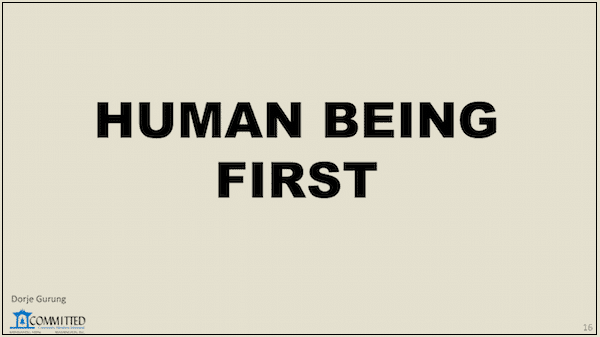
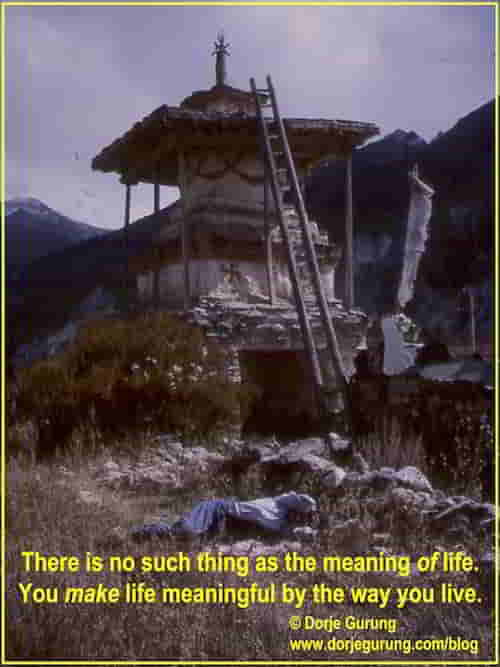
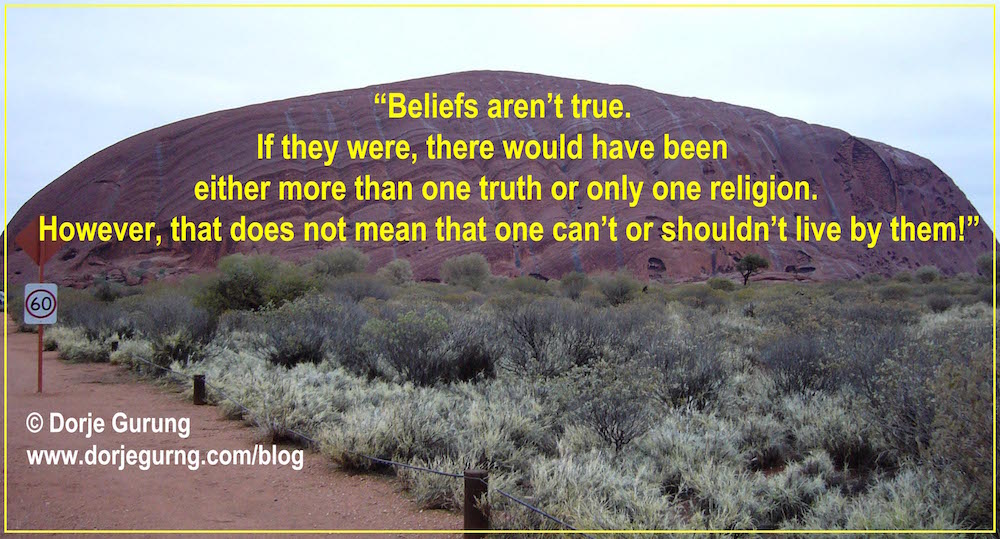
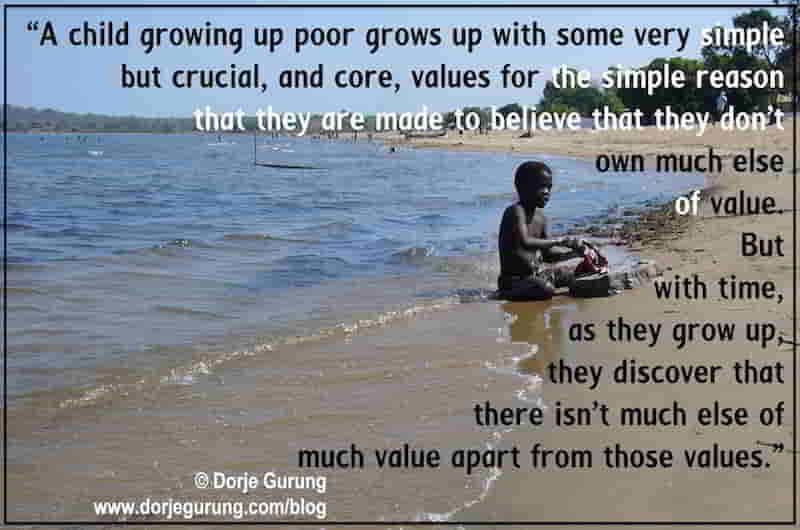
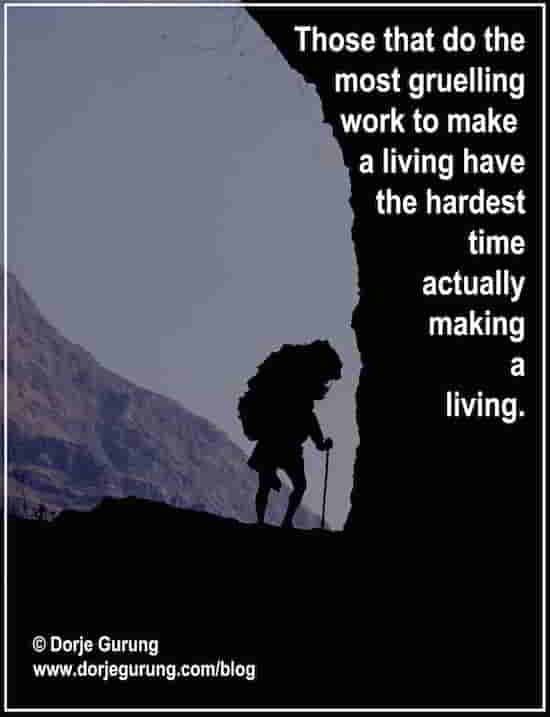
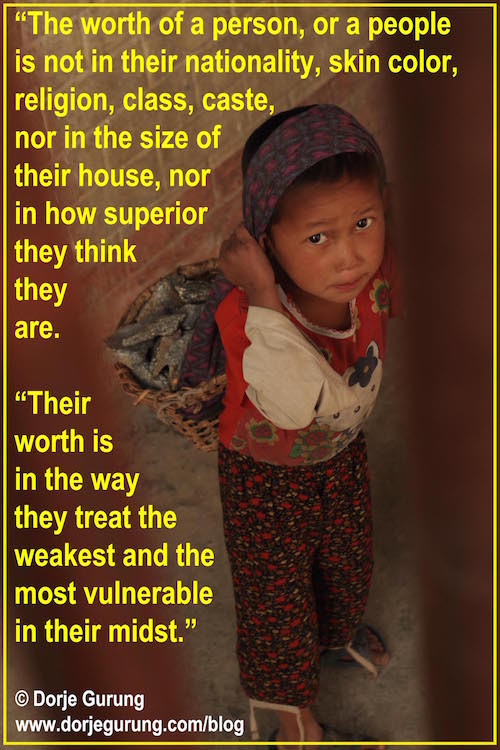

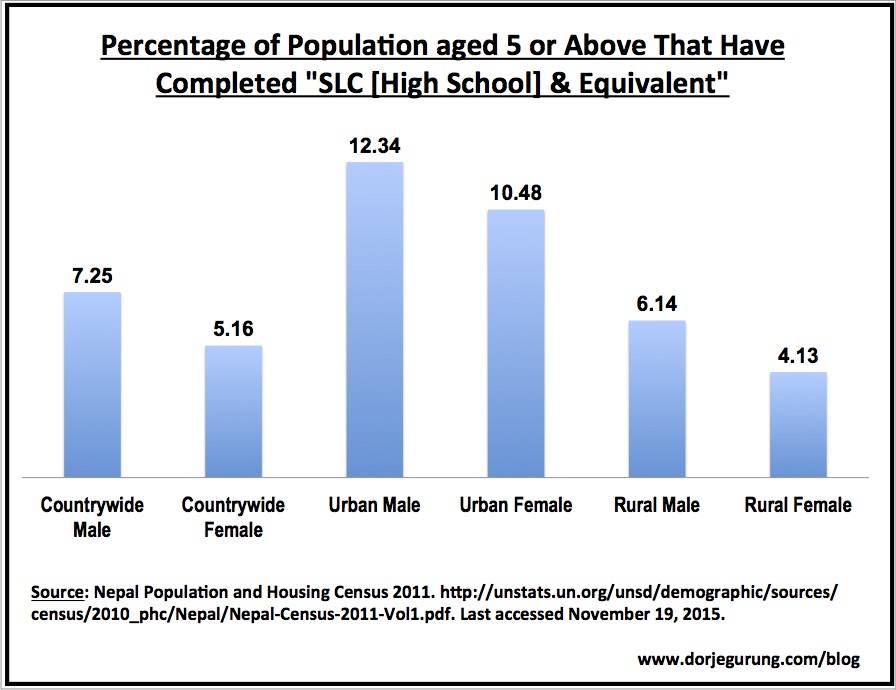
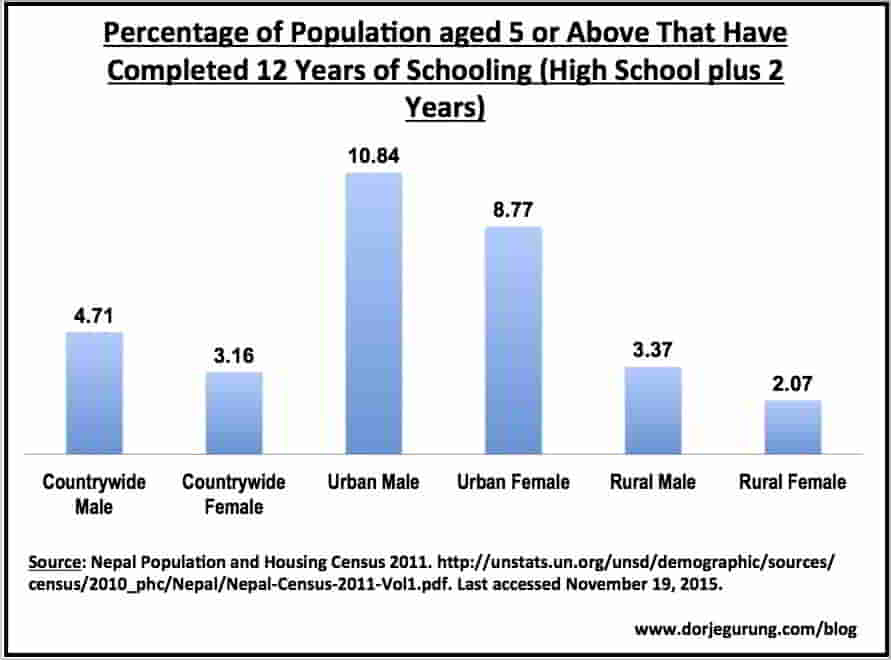
such an amazing story! thanks for sharing…
You are welcome Tenzing!